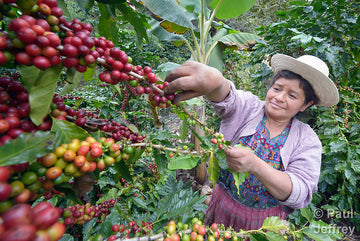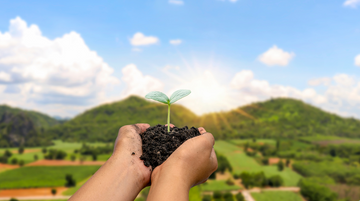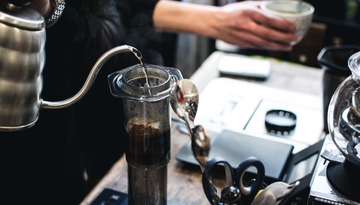
Using Coffee For Social Impact - Women's Inequality in the Coffee Industry
The majority of our world's coffee is sourced from country's in which women are severely less economically and legally advantaged than their male counterparts. In this article, we explore the way's in which the world's coffee-producing powerhouses bestow a range of disadvantages and obstacles upon female laborers, and how simple changes in your consumption habits can help solve a problem in dire need of our attention.
What issues do women face in the coffee industry?
Countries within central America, South-East Asia, and Africa enforce land tenure laws that favor male lineage. Some also require that a male's name appear on the land title, which significantly obstructs women's ability to pursue their own operations. These legal handicaps prevent savings and cash that would otherwise flow to a disadvantaged social class, relegating female farmers to laborer status. When a disproportionate amount of time is spent conducting manual labor, women are left with a condition known as "time poverty".
What is Time Poverty?
In many male-dominated cultures, women are expected to take on the brunt of child-rearing tasks, in addition to income producing obligations. This arrangement leaves few opportunities for women to pursue economic or innovation investments of time and energy that might result in long-term income stability. Additionally, many coffee growers are what is known as "Small Holders".
What is a Small Holder?
Small Holders are farms with less than 5 Hectrares of land. On these farms, family members, and particularly women, are often the primary source of labor, and work without a formal wage. This drastically reduces their productive capacity, as they may not be able to invest in process improvements, and will have difficulty gaining access to modern farming tools and equipment, like fertilizers and machinery. Barring an absence of investable capital, it is also difficult for women to acquire business and agriculture loans in these countries.
Why is it difficult for women to get credit in developing countries?
Agriculture loans typically require fixed assets as collateral - which, as we described above, women are also legally barred from obtaining. Without fixed assets in their name to secure these loans, the productive capacity of female farmers is further reduced.
How can I help put an end to this?
This arrangement represents an ugly injustice in our world. Dated legal and cultural practices strip deserving individuals, and especially women, from economic opportunities freely available to men. This is a reality that unfolds daily in a variety of different ways the world over, and the example of labor exploitation in the coffee industry is just one of them. However, this isn't a reality we're obligated to accept.
Bit by bit, conscientious consumption can flip this condition on its head. For instance, beans purchased from female co-ops increase revenue to a social class that is culturally and legally subjugated to lesser economic status.
An increase in wages and investable income among these women are the ingredients needed to ensure more female farmer's gain access to land, loans, and the capital needed to free up the economic opportunity they deserve.
As the second most consumed beverage in the world after water, coffee offers a high-impact, wide-scope opportunity for consumers to tip the global scales towards equality.
In our mission to educate coffee drinkers on how they can "Use Coffee for Good", we are especially eager to offer "Sofisticada" as an opportunity for our customers to support this worthy cause. We've roasted this bean with the care it's mission demands, and believe the taste will simply be another persuasive element in convincing you to support this mission along side us.
When deciding whether to purchase your coffee from one of the many large, likely exploitative coffee corporations in the world, or one that supports global development and quality, the answer should be easy - choose the latter.




